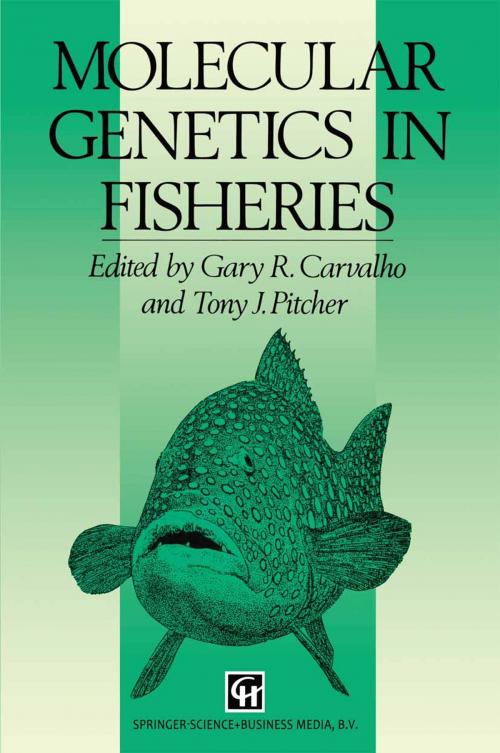Molecular Genetics in Fisheries
Nonfiction, Science & Nature, Science, Biological Sciences, Biochemistry, Technology, Agriculture & Animal Husbandry| Author: | Gary R. Carvalho, Tony J. Pitcher | ISBN: | 9789401112185 |
| Publisher: | Springer Netherlands | Publication: | December 6, 2012 |
| Imprint: | Springer | Language: | English |
| Author: | Gary R. Carvalho, Tony J. Pitcher |
| ISBN: | 9789401112185 |
| Publisher: | Springer Netherlands |
| Publication: | December 6, 2012 |
| Imprint: | Springer |
| Language: | English |
The basic principle of all molecular genetic methods is to employ inherited, discrete and stable markers to identify genotypes that characterize individuals, populations or species. Such genetic data can provide information ori the levels and distribution of genetic variability in relation to mating patterns, life history, population size, migration and environment. Although molecular tools have long been employed to address various questions in fisheries biology and management, their contributions to the field are sometimes unclear, and often controversial. Much of the initial impetus for the deployment of molecular markers arose from the desire to assess fish stock structure based on various interpretations of the stock concept. Although such studies have met with varying success, they continue to provide an impetus for the development of increasingly sensitive population discriminators, yielding information that can be valuable for both sustainable exploitation and the conservation of fish populations. In the last major synthesis of the subject, Ryman and Utter (1987) summarized progress and applications, though this was prior to the wide-scale adoption of DNA methodology. New sources of genetic markers and protocols are now available, in particular those that exploit the widely distributed and highly variable repeat sequences of DNA, and the amplification technique of the polymerase chain reaction.
The basic principle of all molecular genetic methods is to employ inherited, discrete and stable markers to identify genotypes that characterize individuals, populations or species. Such genetic data can provide information ori the levels and distribution of genetic variability in relation to mating patterns, life history, population size, migration and environment. Although molecular tools have long been employed to address various questions in fisheries biology and management, their contributions to the field are sometimes unclear, and often controversial. Much of the initial impetus for the deployment of molecular markers arose from the desire to assess fish stock structure based on various interpretations of the stock concept. Although such studies have met with varying success, they continue to provide an impetus for the development of increasingly sensitive population discriminators, yielding information that can be valuable for both sustainable exploitation and the conservation of fish populations. In the last major synthesis of the subject, Ryman and Utter (1987) summarized progress and applications, though this was prior to the wide-scale adoption of DNA methodology. New sources of genetic markers and protocols are now available, in particular those that exploit the widely distributed and highly variable repeat sequences of DNA, and the amplification technique of the polymerase chain reaction.















